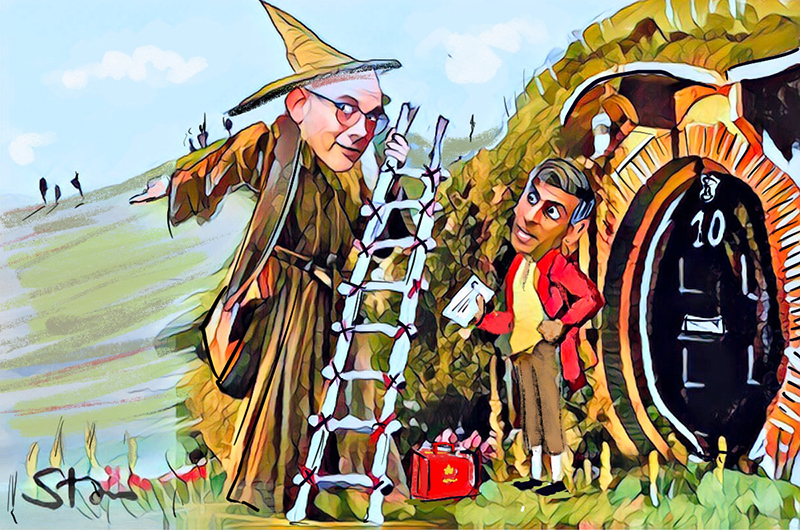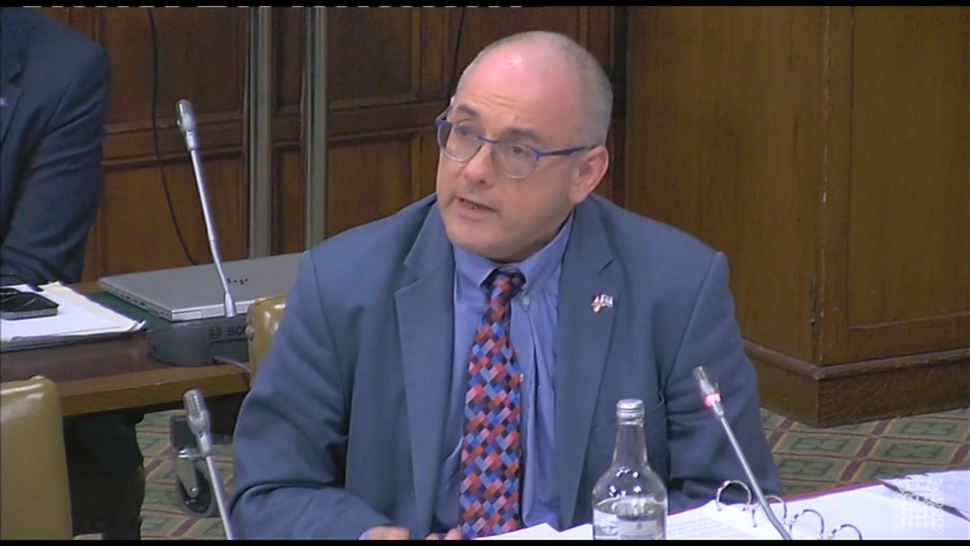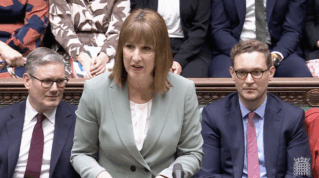The sector was rocked on Tuesday by the sudden resignation of skills, apprenticeships, and higher education minister Robert Halfon.
The lifelong Tolkien fan signed off on fourteen years championing further education, particularly apprenticeships, in parliament invoking the wizard Gandalf: “My time is over: it is no longer my task to set things to rights, nor to help folk to do so. And as for you, my dear friends, you will need no help … among the great you are, and I have no longer any fear at all for any of you.”
Unlike Gandalf though, Halfon has no intention of disappearing across the sea, never to be seen again.
“My first political speech in 2010 was about apprenticeships, and my last political speech – whatever day that may be – will be on apprenticeships and skills. I’m actually determined that’s the case,” Halfon told FE Week the day after resigning.
Politicians often go to great lengths to avoid answering questions about their future career ambitions. But Halfon is clear: “I want to work in education and skills when I leave. I don’t know what that will be, but it’s been my great passion in life.”
Tributes from national FE leaders were uniform in their praise and gratitude when the news broke.
Sue Pember, policy director at Holex, who Halfon described as “a difficult woman to defy”, said his departure from government “will leave a void that will be keenly felt”.
Pember is not alone in attributing the increased political profile of skills and apprenticeships to Halfon’s unapologetic and relentless advocacy from the back and front benches.
But, for him, his time was up.
“I’ve been thinking about leaving parliament for a few months. I had early discussions with the chief whip earlier in the year, but nothing had been finalised. I also wanted the government and the prime minister to know. But it’s not an easy decision.”
Between now and whenever the general election takes place, he will dedicate his time to his beloved Harlow constituency free from the pressures of ministerial office.

‘I did everything I could’
He won the seat in 2010 from the Labour Party’s Bill Rammell, a former further education minister, on his third attempt, increasing his majority since then from 4,925 to 14,063 in 2019.
In his 14-year stint in the House of Commons, he’s almost always had a parliamentary, party or government job on top of his responsibilities as an MP. He appears enthused about being able to speak his mind without having to conform to government collective responsibility.
“I’ve done this job now for 18 months, and it’s something I’m very proud of. I did everything I could do in the run-up to an election. As a minister, you obviously do work hard in your constituency. You’re not able to do as much as you can, particularly publicly, and there are things I want to do for the people of Harlow before I leave office.
“That’s why I had to make the very tough decision to step down from a job that I love and wanted to do and felt that I was able to hopefully do some good while I was there.”
The 2010 maiden speech in the House of Commons had him call for “root-and-branch cultural change” so apprenticeships are “held in the same regard as higher education by secondary teachers”.
Reforms to the Baker clause, requiring schools to host employers, colleges, and training providers to promote technical education and apprenticeships for “encounters” to their pupils, were led through parliament by Halfon.

“One of the reasons why I thought it was okay to go at this time was because a lot of the work that we were doing is on its way,” he said.
The frontbencher has become well-known for his “ladder of opportunity” catchphrase and has been influential over policies including the apprenticeship levy, T Levels, adult education budget devolution, the lifelong learning entitlement and level 3 qualification reforms.
Despite being on the same page as leaders on the importance of FE and training, rifts have emerged over the years on funding. Reviews of apprenticeship funding bands have been “too slow,” some standards are chronically underfunded, teachers are underpaid, and inflation has chipped away at already stretched budgets.
“I did everything I could to get more funding for FE,” he said, highlighting: “To get any penny out of the Treasury is very hard nowadays.”
But he considers funding wins on degree apprenticeships, care leaver bursaries and more recently on SME apprenticeships as some of “the big things” he wanted to see done before stepping down.
Earlier this month, the prime minister announced the government will fully fund the training of younger apprentices in small and medium-sized businesses, adding £60 million to the apprenticeships budget.
“I was over the moon about the £60 million, as you can imagine, for apprenticeships. New money in a very difficult climate. That was on top of £50 million that came last year in the autumn statement for specialised STEM apprenticeships.
“Money is not easy to come by. But I think given what we’ve received from the chancellor, and the removing of the cap on small businesses. I think we’re doing okay. Believe me, I’d love more. But where every single government department wants more spending, I think in my area, at least while I’ve been there, I’ve been proud that we’ve had extra money.”
Halfon said defending adult education, particularly community learning, is another of his achievements.
“I love community learning. The department knew I loved it. I had five priorities for adult education, the first was community learning and to at least keep the budget for that. And we’ve done so. I’ve done everything I can to support it because I really, really believe in it.”
But with economists warning of harsh cuts to come for non-protected department budgets following the government’s recent tax cuts, should the community learning sector be worried now that Halfon won’t be at the negotiating table?
“I think the sector’s got an incredible case to make,” he said.
“What I would do is not just focus on how brilliant it is, but what makes the case is focusing on the outcomes. What is the next step these people take, or how has it improved their mental health and wellbeing? I think that helps when you’re making the case to the Treasury. It really does.”
Political trade-offs
One of the quirks of Halfon’s career is his five-year stint as chair of the education select committee in between spells as the skills minister.
He made a name for himself for interrogating ministers and officials from the chair – which he said suited his personality as a “campaigner at heart”. He was critical of government policy that he would once again find himself responsible for, like the rollout of T Levels and the effectiveness of the Careers and Enterprise Company.
“One thing I did learn is it’s a lot easier to ask the questions than answer them.”
For Halfon trading the ability to freely speak his mind as committee chair with towing the party line as minister was worth it. Returning to the DfE as minister was “a chance to do stuff and really make things happen”.
Funding widening participation projects for degree apprenticeships, increasing the care leaver bursary, and laying the groundwork for the “revolutionary” lifelong learning entitlement wouldn’t have been possible as a committee chair, he asserts.
He spent his last day at DfE with his civil service directors, who he described as “literally outstanding”.
“It was quite emotional for me. I realised I was sitting in a room with great, great people. I’m very grateful to them.”

















Your thoughts